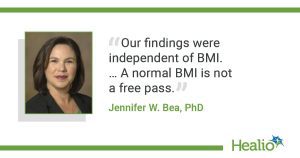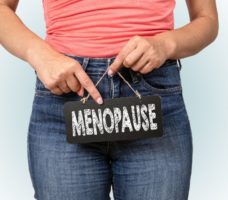Action Points
- Note that this study was published as an abstract and presented at a conference. These data and conclusions should be considered to be preliminary until published in a peer-reviewed journal.
CHICAGO — Menopausal hormone therapy wasn’t associated with cognitive harm in a follow-up to several trials, researchers reported here.
In an update to three trials involving menopausal hormone therapy — the Kronos Early Estrogen Prevention Study Cognitive and Affective Study (KEEPS-Cog), the Early versus Late Intervention Trial with Estradiol Cognitive Endpoints (ELITE-Cog), and the Women’s Health Initiative Memory Study of Younger Women (WHIMS-Y) — short-term estrogen therapy had no significant impact on cognition when initiated close to the start of menopause, according to Carey Gleason, PhD, of the Wisconsin Alzheimer’s Disease Research Center in Madison, and colleagues reporting at the Alzheimer’s Association International Conference.
Notably, this is in contrast to findings from the 2003 WHIMS trial that included older women between the ages of 65-79, which found an increased risk for dementia in postmenopausal women on estrogen plus progestin therapy.
Furthermore, in a follow-up analysis of WHIMS, women with type 2 diabetes who initiated hormone therapy at age 65 or later had an increased risk for dementia (HR 1.54, 95% CI 1.16-2.06) and cognitive impairment (HR 1.83, 95% CI 1.50-2.23).
“When deciding whether to use hormone therapy at menopause to address menopausal symptoms, a woman and her doctor should take a personalized medicine approach,” Gleason told MedPage Today. “For example they should consider her health status — is she nondiabetic — her risk factors for estrogen-related cancers, and how troublesome her menopausal symptoms are.”
The KEEPS-Cog analysis included more than 660 women placed on 4 years of hormone therapy in the form of oral conjugated equine estrogens (0.45 mg/day) or an estradiol patch (50 μ/day) paired with cyclic progestin (200 mg/day) initiated within 3 years from the final menstrual period.
Compared with placebo, women on hormone therapy had similar cognition. However, those on oral conjugated equine estrogens experienced an improvement in mood, marked by a lessening in anxiety and depression.
Similar findings were seen in the ELITE-Cog study, which found no difference in cognitive performance when comparing women on 5 years of oral estradiol with women on placebo. This study also saw no significant cognitive difference between women on hormone therapy early (<6 years after final menstrual period) versus late in menopause (>10 years after).
JoAnn Pinkerton, MD, executive director of The North American Menopause Society (NAMS) and of the University of Virginia Health system, said the studies bring some clarity to hormone therapy’s impact on cognition post-menopause.
“There is data suggesting that hormone therapy given at the time of early menopause — surgical or natural — and continued to the average age of menopause may have a beneficial effect on cognition,” Pinkerton told MedPage Today, who wasn’t involved with the study. “We know that women who take hormone therapy tell us that they have less ‘brain fog’ but that may be due to decreased hot flashes and sleep disruptions rather than a direct effect on cognition.”
Despite the research already conducted on this topic, there are still many lingering questions with hormone therapy including long-term risks, benefits, and differing effects from various types of estrogen like conjugated estrogens, as well as synthetic and micronized progestogens.
“We don’t know whether hormone therapy given at menopause has a beneficial effect on delaying or reducing the incidence of Alzheimer’s disease,” Pinkerton also noted, and added how there is limited observational support to indicate hormone therapy early in menopause may play a role in Alzheimer’s prevention, but said this is “difficult to prove.”
Nonetheless, these findings are in line with the NAMS position statement on hormone therapy who recommend treatment be initiated close to menopause and ideally under the age of 60 within 10 years of the start of menopause.
“Currently hormone therapy cannot be recommended to prevent or treat a decline in cognitive function or dementia and may worsen cognition in older women who start hormone therapy over age 65. Women with normal cognitive function may have more favorable effects from hormone therapy, particularly when started close to menopause, but we lack definitive data” Pinkerton said. “There may be benefits on cognition if started right after early surgical menopause but no evidence that it improves or worsens cognition after natural menopause.”
Pinkerton also praised the WHIMS follow-up study for helping clinicians to understand that women older than 65 with diabetes should generally avoid hormone therapy.
In regards to future research, Gleason said her group plans to launch the “KEEPS Continuation” study later this year, focused on long-term effects of menopausal hormone therapy. “Women enrolled in the KEEPS trial will be re-contacted 12 years after they were randomized to placebo or one of two forms of hormone therapy. We will evaluate cognition and mood and Alzheimer’s disease biomarkers,” she explained.
The study was funded by the U.S. National Institute on Aging.
This content was originally published here.








